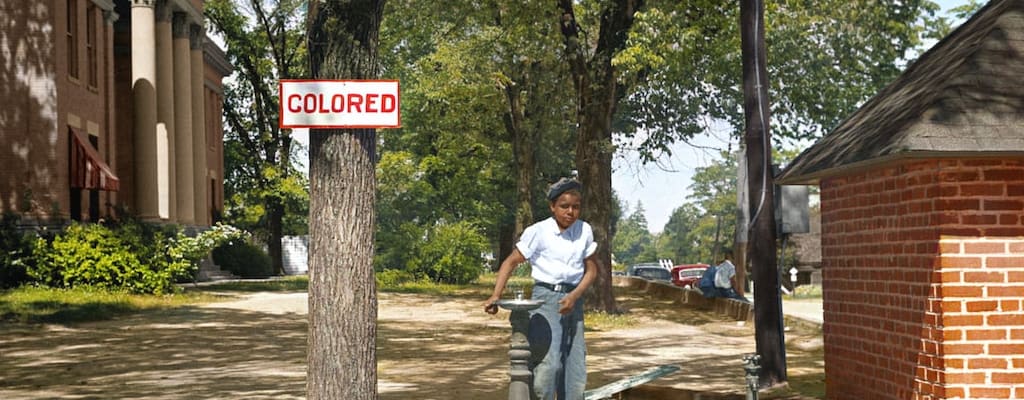live in the past: Idiom Meaning and Origin
What does ‘live in the past’ mean?
The idiom "live in the past" means to continue to think about or focus on things that happened in the past instead of living in or dealing with the present moment.

Idiom Explorer
The idiom "thing of the past" refers to something that is no longer relevant or in use, indicating that it belongs to a previous time or era.
Idiom: put the clock back
Meaning: To revert to a previous state, usually with negative connotations, typically referring to the inability to change or reverse past actions or circumstances. It emphasizes the impossibility of returning to the way things were before.
The idiom "put something behind one" means to forget about something that has happened in the past and move on, leaving it behind emotionally and mentally.
The idiom "put it past" means to believe or accept that someone is capable of doing something, often something unexpected or shocking, based on their past behavior or character traits.
The idiom "out of date" means something or someone that is no longer current, modern, or in fashion.
The idiom "out of sight, out of mind" means that when something or someone is not visible or present, people tend to forget about it or them.
The idiom "of late" refers to something that has occurred or been happening in the recent or immediate past.
The idiom "not leave one's thoughts" means that something or someone is constantly on a person's mind, and they cannot stop thinking about it or them. It implies a strong and persistent presence in one's thoughts or emotions.
Time Travelers of Memory
The idiom "live in the past" refers to individuals or groups who dwell on or cling to memories, experiences, or ideas from the past instead of embracing the present or looking forward to the future. It can describe people who resist change, hold on to traditions, or have a longing for a past that may or may not have existed. This idiom is often used to critique those who struggle to adapt to new circumstances or accept change.
One interpretation of this idiom suggests that individuals who "live in the past" often have a preference for familiar routines and resist technological advancements. They may hold on to traditions that may no longer be relevant or practical. These individuals may display nostalgia and romanticize the past, idealizing a time when things were supposedly better, simpler, or more authentic.
Another aspect of the idiom refers to individuals who are fixated on past achievements or glory days. This could apply to former athletes who reminisce about their past athletic prowess or individuals who reminisce about their youth and the milestones they achieved. It can also refer to organizations or communities that persistently highlight their past accomplishments while failing to innovate or progress in the present.
Furthermore, the idiom "live in the past" can also capture the notion of dwelling on past mistakes or regrets. Individuals who continuously ruminate over past failures, missed opportunities, or broken relationships are said to "live in the past." This mindset can hinder personal growth as it prevents individuals from fully embracing the present moment and moving forward.
The related idiom "move on" is closely connected to the concept of "live in the past." When someone is encouraged to "move on," it means they should let go of the past and focus on the present or future. It suggests that dwelling on past events or experiences can be detrimental and that it is necessary to let go and embrace new opportunities.
Similarly, the idiom "thing of the past" is another related expression. It implies that something has become outdated or is no longer relevant or practical. When something is considered a "thing of the past," it highlights the need to move forward and adapt to new circumstances or innovations.
The origin of the idiom "live in the past" is unclear. Its etymology may be difficult to trace as it has likely emerged naturally in the English language over time. However, its meaning reflects a universal human tendency to be nostalgic or resistant to change. The idiom is widely accepted and understood, found in literature, popular culture, and everyday conversation.
As with many idiomatic expressions, the interpretation of "live in the past" can vary depending on the context and perspective of the observer. While it is often used pejoratively, suggesting a negative trait, it is important to recognize that some level of reflection on the past can be valuable for personal growth, understanding history, or preserving traditions.
The idiom "live in the past" encompasses a range of meanings relating to resisting change, fixating on past achievements, and dwelling on past mistakes or regrets. It invites us to reflect on how our relationship with the past shapes our present and future. "Moving on" and recognizing that certain things are "things of the past" are both important in order to embrace new opportunities and growth.
Example usage
Examples of how the idiom "live in the past" can be used in a sentence:
- She needs to move on and stop living in the past.
- He constantly reminisces about his glory days, clearly living in the past.
- It's time for him to embrace the present instead of always living in the past.
The idiom "live in the past" refers to someone dwelling excessively on past events or times, not being able to move forward or adapt to the present. It implies that the person is not fully engaged in the present moment and may miss out on new opportunities or experiences. Using this idiom can convey the idea of being stuck in the past or having difficulty letting go of previous experiences.
More "Expression" idioms



